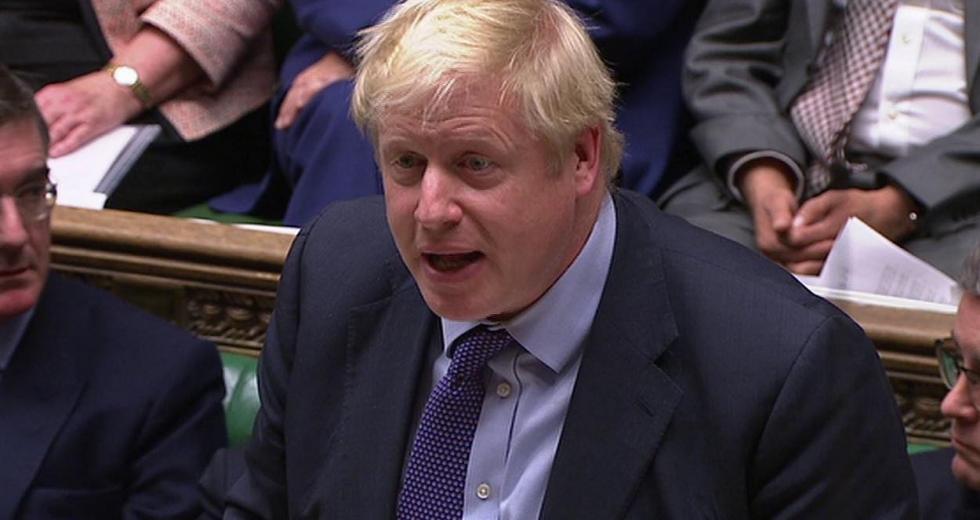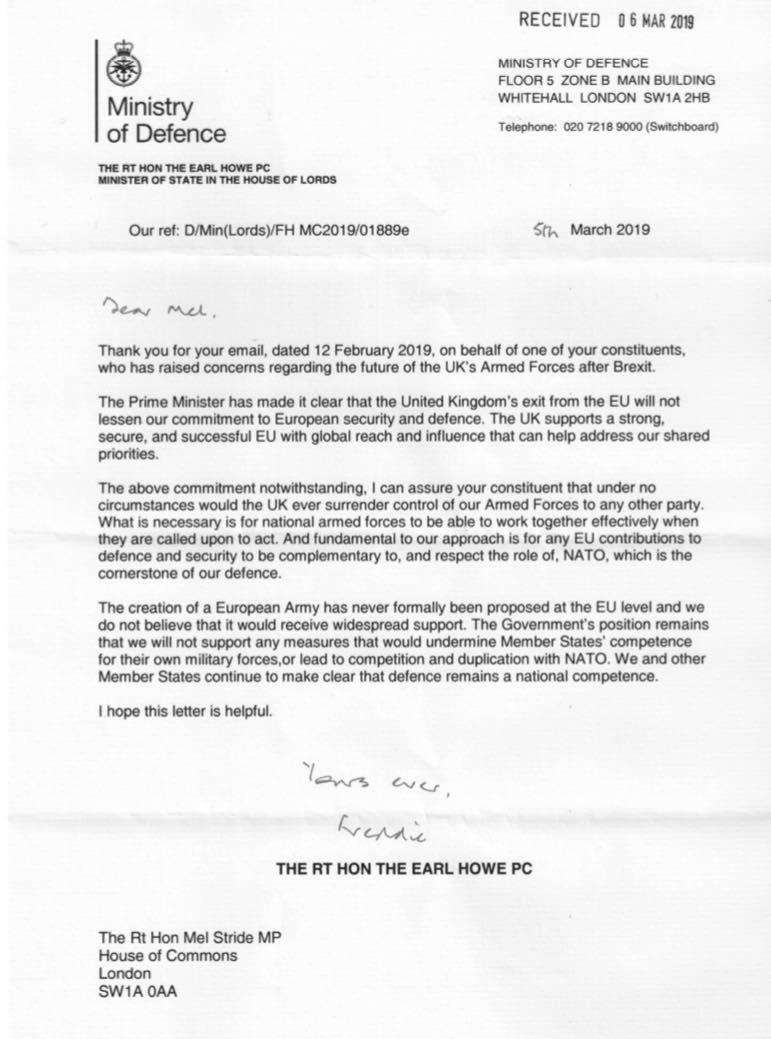
During the debate in Parliament on the Withdrawal Agreement Bill, Bournemouth East MP Tobias Ellwood asked Boris Johnson a question on the UK’s defence relationship as a result of the ‘new’ withdrawal agreement:
Clause 36 relates to parliamentary sovereignty, and I invite him to confirm that the UK will retain its own sovereign military capability as outlined in paragraphs 92 and 99 of the political declaration and not be committed to any EU mission, military initiative or procurement project unless we do so voluntarily.
Boris replied as follows:
My right hon. Friend alludes to an important change that we have been able to secure in the course of the negotiations, and he is right that full independence will be retained in the vital sphere of defence and security. I am grateful to him for drawing attention to it.
We should all be grateful to Mr Ellwood for drawing attention to it, because it exposes this government, and its predecessor, as being somewhat economical with the truth.
The implications of Boris’s statement are clear: it is only since an ‘important change’ was negotiated that the full independence of Britain’s defence and security is guaranteed.
But this contradicts every communication from government ministers and Members of Parliament who have consistently denied any British involvement in EU defence plans.
As recently as March 2019, the then Defence Minister Earl Howe wrote to Mel Stride MP, “I can assure your constituent that under no circumstances would the UK ever surrender control of our armed forces to any other party.”
Earl Howe echoed this statement in answers to hundreds of other enquiries from the public on this matter.

The contradiction between Earl Howe's position eight months ago and Boris Johnson's this week suggests that one or other of them was being deliberately misleading. Or perhaps both? Perhaps neither of them knows?
That certainly seems to be the case for Ben Wallace MP, the current Secretary of State for Defence, who made clear in an interview on the fringe of the recent Tory Party Conference that he has no idea what Britain’s obligations to the EU on Defence may be, claiming it as a matter for lawyers to work out.
So far Boris has provided no written confirmation of his claim that he has negotiated any kind of change to Britain's obligations to the EU on Defence, important or otherwise.
There’s no sign of it in the revised Withdrawal Agreement, or in the revised Political Declaration on the Future Relationship. It’s not mentioned in the Withdrawal Agreement Bill either.
At this point in time, then, we have only Boris’s word that there is any such ‘important change’. Is that enough?

